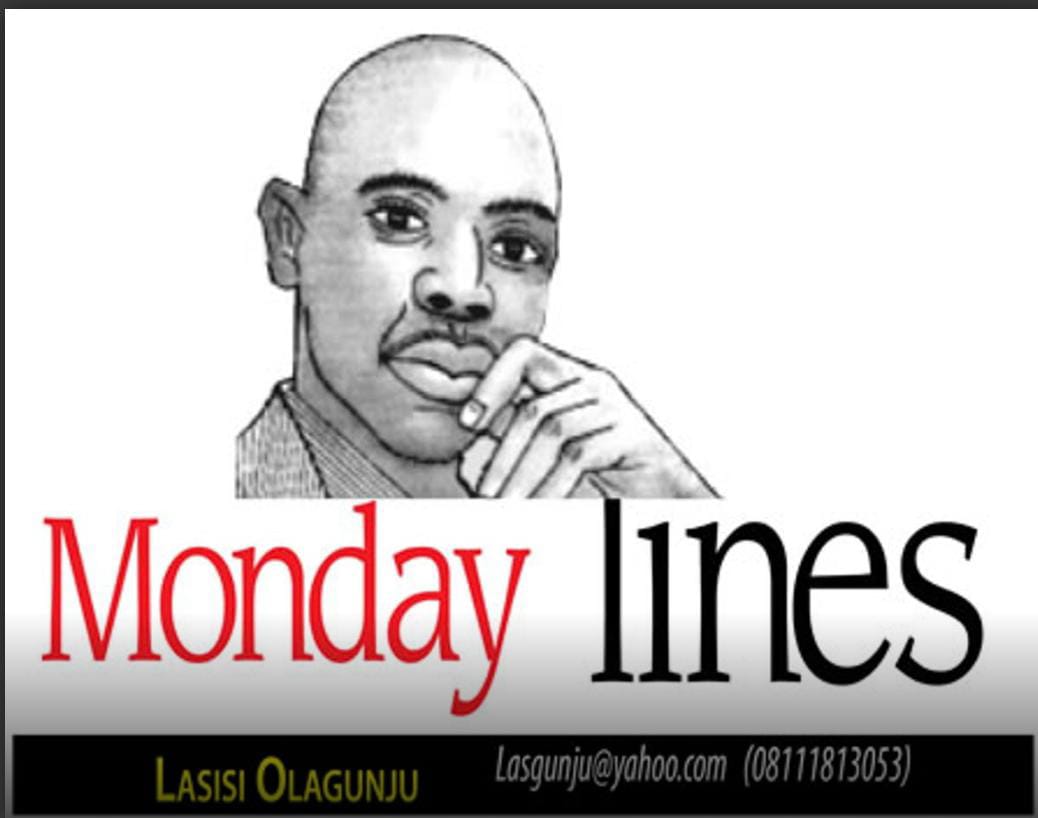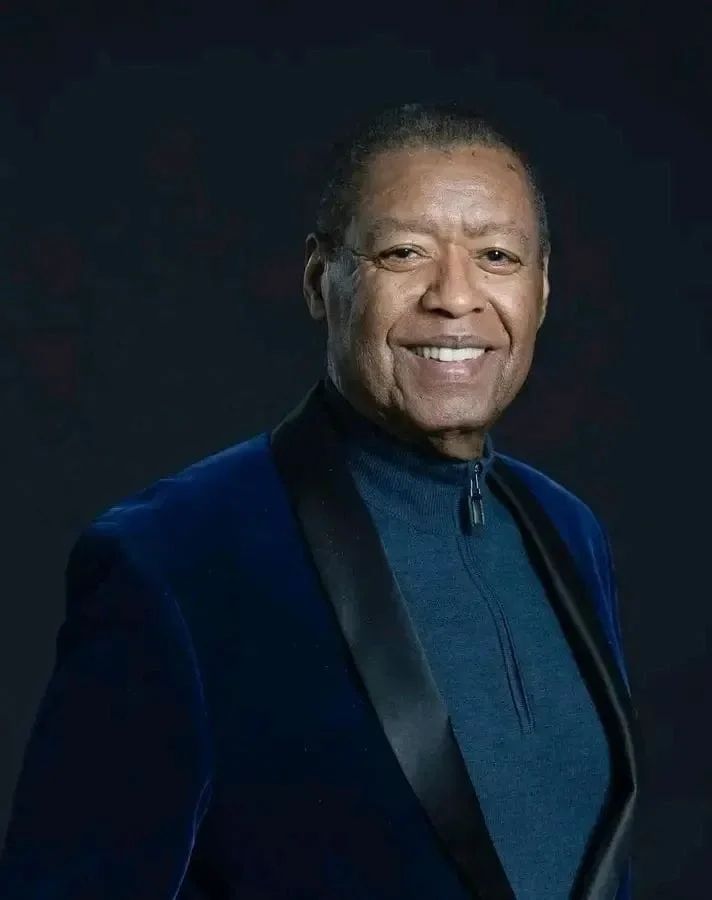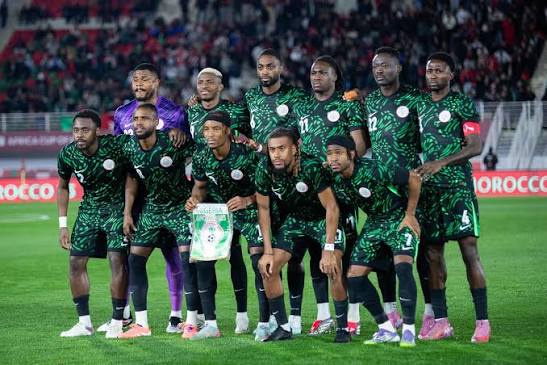
By Lasisi Olagunju
Why did Bola Tinubu offend Nasir El-Rufai? He should have kept him. There are three principalities the Yoruba dread to offend: The first is Osó (wizard), the second is Àjé (witch); the third is the most dreaded, their name is Aláròká. How do I translate that into English? I cannot, but you will get to know what it means when you hear the Yoruba say: Eni gbé adìẹ òtòsì, ó gbé ti aláròká (Whoever steals a poor man’s chicken has stolen from the one who will shout about it from street to street). The proverb is a warning against having as enemies those who have legs, and have mou,th,s, and who thrive on noise.
On Sunday last week, El-Rufai was at his oppositional best on Channels Television, levelling allegations, issuing threats, and giving assurances. The state breeds and feeds terrorists and bandits for political gain, he claimed. That was on Sunday. On Friday, he went one step further. If he had been told two years ago that he would be in a church against his Muslim brother, the president, El-Rufai would have said “A‘ūdhu billāhi mina sh-shayṭāni r-rajīm (I seek refuge in Allah from the accursed devil).” But he was in a church in the South-East last Friday doing just that, suited up like a pastor, preaching sermons of democracy and deliverance and promising to lower the flag of today’s lord in the Villa. That is the problem with all aláròká; once they start, they don’t stop unless and until they are done. This one will not stop. Where he will be today, and tomorrow, and what message he will carry depends on what the Nigerian police do with him. He has been asked to submit himself to the law allegedly for being rude to the law.
The government will soon learn that neither police invitation nor detention can sew up the honker’s lips. In my part of the country, we say there is no armour against the bullets of aláròká. Never fight or underestimate the aláròká; he is the one whose voice multiplies and complicates a quarrel until the whole village hears. Huffing and puffing, and talking and threatening are El-Rufai’s strongest weapon against his victims. His present noise and the threats his cries contain are the consequences for Tinubu’s ditching of Nasir, his friend and ally. When you offend someone who looks small, you may in fact have provoked the person who has the loudest voice.
The police inviting him won’t shut him up. That was exactly the undertone when Nasir said on that TV programme: “I am not afraid of anybody. I say my mind and I don’t look back.” In those words, he defined himself as the quintessential aláròká, the one whose voice ensures that an injury does not die in silence.
So, President Tinubu and his minders would be mistaken if they thought a cheap police invitation would defeat ‘small-body-big-engine’ Nasir. Whoever has crossed El-Rufai has not just taken a poor man’s chicken; the person has, knowingly or unknowingly stirred up the town-crier who will not stop shouting until everyone knows the story of the soup that burnt down the whole house.
Now, jilted El-Rufai is determined to undo what he did for Tinubu in 2023. That is the role he has chosen for himself. He does this street to street, city to city dismantling the myth of Tinubu’s invincibility. He now waxes prophetic: “In the 2027 elections, the worst-case scenario is a runoff, and Bola Tinubu will not be on that ballot. At best, he will place third. He has no viable pathway to victory. I’ve done the maths, I’ve done the analysis; it’s simply not there.” He said that and then added the dagger: “He can continue deceiving himself, thinking, ‘I have money, I have INEC, I have the police, I have the army.’ Well, President Tinubu, go and invite ex-President Goodluck Jonathan for a chat. Ask him if he didn’t also have all these in 2015, and yet we removed him. Is the situation similar today? It’s worse.”
But, I am worried. And you should be, too. How innocent is El-Rufai in the rottenness of the system he is complaining about? He could be genuinely clean; he could be genuinely filthy. But if his hands are not clean, shouldn’t he first confess and seek forgiveness before wearing the tunic of the messiah? The Bible’s St. Luke (18:10-14) tells of “Two men (who) went up into the temple to pray: One said, ‘God I thank thee that I am not as other men’; and the other smote upon his breast, saying, ‘God be merciful to me a sinner.’” What was God’s response to the two sinners? Reading it is so instructive as we navigate the dangerous waters of Nigeria with its feuding political elite.
These days, the jilted are rebelling with daring moves and statements. The government is reacting, it is blocking rallies, north and south, and issuing summons. For now, we hear charges of betrayal; tomorrow it may be treason. These things are not new. People in government have historically seen opposition to them as either an act of betrayal or treason or both. They can be both right and wrong; most times wrong. We learnt from ‘Tyranny of The Minority’ authored in 2023 by Steven Levitsky and Daniel Ziblatt, Harvard professors of government, that in the early years of the United States’ democracy, “the very existence of partisan opposition was regarded as illegitimate. Politicians, including many of the founders (of America) equated it with sedition and even treason.” Indeed, in 1798, the US Congress passed the Alien and Sedition Acts “which were used to jail opposition elements and newspaper editors.” The jailed were labeled betrayers. But the repression did not last. It, in fact, blew up in the face of its makers in 1800, just two years after that law was enacted. You ask how? The government lost the 1800 election; the disgusted American voter, for the first time, elected the opposition Democratic-Republicans. You can try, like me, to read that book, particularly Chapter One; its title is: ‘Fear of Losing’. If you are from my country, you will appreciate the details, especially if you also know that those authors also wrote ‘How Democracies Die.’
Betrayal is despicable; treason is evil. American Associate professor of history, Sally Shockro, in her ‘ Blessed Betrayal’ warns that “in a culture centred on honour, a betrayal diminishes the status of the perpetrator, and often the victim as well, destroying the personal fortunes of those involved along with the trust of the community.” Now, can I quickly add this: “if the institutions of power are corrupt, is resistance an act of betrayal or an act of loyalty to the greater good?” This question forms part of the reasoning in Larissa Tracy’s ‘The Shameful Business of Betrayal and Treason.’ The author who asks that question is a professor of Medieval Literature at Longwood University, United States. You can answer the question based on where you stand and on what you stand on. I wish we could pose it to the feuding lords of our manor and know where we and the state stand in their estimation.
They are fighting over the spoils and loot of the last war. The shut-out feel betrayed, genuinely so; now they are all out to crash the temple of power. In Crystal Parikh’s ‘An Ethics of Betrayal’, we are reminded that ‘betrayal’ as a “crime provides its own punishment” and that “where traitor feeds upon traitors, betrayal exacts its own self-consuming vindication.” If Tinubu had not offended El Rufai, we would not have been hearing the secrets we hear these days; very dark secrets couched as bad, wicked allegations. First, El-Rufai on national TV accused the ruling APC and its government of financing bandits and terrorists as weapons of politics. Nasir said this and provoked his kinsman from Kaduna, Datti Baba-Ahmed, into making a counter appearance on the same TV platform. From Datti Baba-Ahmed, we heard what the forest heard that deafened it. The man told Channels TV’s Seun Okinbaloye on Tuesday last week that insecurity in Nigeria is “orchestrated and is political.” He said Nasir El-Rufai shouldn’t be the one crying wolf; he said the man belongs in the pack of the implicated wolves.
Hear him: “Do we understand the gravity of his statement?…What I am about to say is that insecurity is part of APC; insecurity has been APC’s way of getting power. Insecurity has been APC’s way of staying in power.” He then went into accounts which I pray must not be true. He said, without mentioning names, that a former Nigerian president met with and collected huge sums of money from the late Libyan leader, Muammar Gaddafi, to sponsor extremists in Nigeria’s North-East. Hear him: “Go back in time. Do you remember that a former Nigerian president was attacked by terrorists? It was unprecedented; never in the history of Nigeria did that happen. Why did some young men in the forest in the North-East…what business did they have (with him)? When Nigerian leaders leave power, they are liked, they are loved, they are forgiven all their errors and everything. But, this one, they followed and tried to kill him. Why did that happen?” He asked, paused and feigned crying. Then he continued: “What happened to all the donations leading up to 2015? Why did he decide to run in 2015 after crying and telling the whole world that he was no longer running? What was his link with North Africa? What was his link with Muammar Gaddafi? He is not alive, but others are alive to say it.
“I told you about 2015…you see… going after a former president and trying to kill him, what does that tell you? Before that, what had happened? After Jonathan won at the Supreme Court in 2011, the government called for dialogue (with the terrorists) and those young men nominated (the) former Nigerian president. It took three days to repudiate (that nomination). After those three days, go and plot the graph, you will see that between 2012 and 2014, the number of attacks in the North-East skyrocketed.” Datti Baba-Ahmed blamed the escalated terrorist attacks of that period on what he called “hunger, (and) lack medicine(for the terrorists).” Why? “Because somebody had stopped sending the recurrent expenses of those people who used to come to Kaduna, collect (money) and go back.” He alleged (or claimed) that the funding was stopped as a punitive measure for the young men’s indiscretion of publicly naming their covert funder as their negotiator with the government. “That’s how the cycle went, in protest against ‘why did you call out that name (as your negotiator).’ They (terrorists) couldn’t bear it (hunger) anymore, so they felt the best thing was to go and attack (him). It failed; we are lucky… Jonathan provided him (the former president) with additional cars and money. And it was all about money; all about collecting money.
“The truth is that someone had gone to North Africa and negotiated with Gaddafi; Gaddafi who was an international terrorist said ‘I will help you as I have been doing… I will retire to your country if you become president… He wanted to create a buffer in Nigeria. They gave crazy amount of money to that gentleman (the former president) to go and help these people with the intention of bringing them to fight in Libya. When Gaddafi died, ‘they’ sat on the money. They kept on (giving) the recurrent until (the terrorists) mentioned the name and then they stopped sending the money. Now, all these things are linked. They wanted Nigeria to burn if Buhari did not become the president in 2015. They brought people from neighbouring countries in readiness, to remove Jonathan by all means. The desperation to get Jonathan out of power built up and added to what we call insecurity in Nigeria today.” That is Datti Baba-Ahmed saying all those things after the man who was allegedly involved has died. I heard people asking why he did not say those things when the man was here. I wonder too.
Why did he have to wait till El-Rufai said his own before saying his own? And immediately he left the TV studio, someone in their party, Hon Farouk Adamu Aliyu, came in, sat where Datti sat and pointed fingers at Datti too as a disciple of the ex-president he had just accused of financing terrorism.
The you-be-terrorist-I-no-be-terrorist diatribe should lead us to ask who really these people who have been leading us are. Could it be that people who are supposed to be in the dock have all along been the court? Nigeria has faced unremitting violent insurgencies for decades. It ranks 6th on the 2025 Global Terrorism Index and accounts for 6% of global terrorism deaths in 2023. That is according to the Global Community Engagement & Resilience Fund (GCERF). Hundreds of people have been killed and millions more displaced, and the end is not yet. Now, we hear claims, accusations and confessions from these gentlemen that the cause of everything was politics and quest for power.
Whatever is the worth of the long English of the three political leaders from northern Nigeria, it should get us thinking as a nation in dire need of peace and security. Can the agencies in charge of our security and safety ‘collaborate’ with these gentlemen (Datti Baba-Ahmed and Nasir El-Rufai) to draw up an action plan for us to defeat the enemy? Those two guys sounded like they knew too much. It becomes real when you hear Datti declaring that what he said was just about 10 percent of what he had in his belly, begging to be released. How and when will he be released of the remaining 90 percent? It took Tinubu’s non-accommodation of El-Rufai to make the man angry and say what he shouldn’t say; it took a provocative statement by El-Rufai to draw out Datti Baba-Ahmed. Then Adamu Aliyu. They’ve all been in government, yet it appears we do not know them. Who really are they?
Warts and all, each of them still seeks to sleep with us. We are a nation of helpless landlords who must open their door at midnight to bloody invaders. “They say in Yoruba, Ìjàmbá ṣ’olè bí onílé bájí (The thief is in danger if the landlord awakes). But today, the landlord is in danger if he does not open the door for the thief.” That is classic helplessness – or surrender; an inversion or transposition of order and orderliness. University of Michigan art history professor, David T. Doris, has the above quote in his ‘Vigilant Things’ (2011). He goes on to sum up our situation in words of exasperation: The world has turned upside down (Ayé ti d’orí k’odò).









